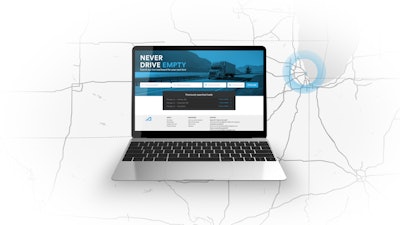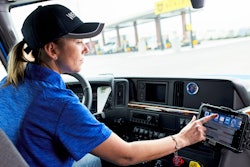
When the Coronavirus disease (COVID-19) hit, many facets of the supply chain experienced disruption. Restaurants closed, some permanently. Excess food went to waste. E-commerce boomed, further fueling the “Amazon Effect.” And, the ever-present driver shortage gap transformed into an overall industry-wide labor shortage issue.
However, despite all of the hiccups and disruptions, trucks kept on truckin’.
In Food Logistics’ August 2021 issue, editor-in-chief Marina Mayer talks with several industry experts about how the global 3PL market continues to play a pivotal role in how and why Americans receive essential goods in a safe and timely manner.
Here’s an interview with Jason Zwirkoski, chief revenue officer of Arrive Logistics, with excerpts publishing in Food Logistics’ August 2021 issue. [CLICK HERE to read the article in full].
Food Logistics: The 3PL market is set to grow to become an over $1.8 trillion sector by 2026, according to Global Market Insights, Inc. From your vantage point, what are some contributing factors to this growth?
Jason Zwirkoski: First and foremost, the COVID-19 pandemic certainly plays a significant role in the recent market uptick. The influx of unemployment benefits and the shift in spending over the last year from vacations, air travel and activities to durable goods and home improvements have impacted inventory levels everywhere in every industry. The continued boom of e-commerce and the shift to an on-demand society has shortened time from storage/inventory to shelf, creating more velocity and demand in the entire supply chain process.
Food Logistics: The transportation and supply chain industry continues to face supply chain disruption after supply chain disruption. How is your company working to overcome these challenges? (think technology, re-training drivers, etc.)
Zwirkoski: Disruptions are normal and fuel the need for brokerages. 3PLs provide sustainable solutions, flexible options and consistency to both shipper and carrier partners. At Arrive Logistics, we use a data-driven approach, so we are able to reference historical data points when needed. Our approach to data, analytics and heavy investment in proprietary technology is a key differentiator. We also leverage Arrive Insights, our analytics team. Arrive Insights delivers market expertise through a unique wealth of internal and external data that helps us adjust our operations, pinpoint new efficiencies and offer critical insights to our partners.
Food Logistics: What is your company doing to meet last-mile demands in the cold food chain?
Zwirkoski: Arrive is constantly innovating. We are focused on developing partnerships with shippers to understand their unique challenges. The final-mile challenges are still being uncovered and vary from customer to customer. The efforts we are putting in place include developing contract carrier partnerships that allow us to more consistently and effectively provide support to our customer’s final-mile needs. The regional and local data gathering and analysis is another piece of the puzzle that is giving us insight on how to best support our customers. Other considerations are innovations and potential partnerships regarding tracking, tracing and temperature monitoring.
Food Logistics: The driver shortage continues to plague the industry. What is your company doing to hire/retain drivers and/or attract new talent?
Zwirkoski: Arrive is obsessed with setting up our carrier partners and the individuals behind the wheel for success. We know when our partners thrive, we thrive. Recently, Arrive launched a campaign called “Carrier Obsession.” It is an internal and external initiative that prioritizes the needs of our carriers and is meant to make their lives easier and our partnerships that much better. It starts with simple things like listening to our carriers, understanding what they want and need and avoiding trying to bait them into freight that is not a good fit. It includes digging into administrative needs they may have, and simply catering to them based on what their business and drivers want. Additionally, Arrive has launched Arrive EDGE for Carriers, our online freight portal, and Triumph Quick Pay. Both carrier products are meant to improve the experience carriers and drivers have when partnering with us. Getting them paid faster and giving them more visibility and access to the freight they want are all part of the investment. In the next quarter or so, we will also be rolling out a carrier loyalty program.
Food Logistics: Driver safety is also of top concern. What is your company doing to ensure driver safety?
Zwirkoski: Driver safety is extremely important. We know the drivers work hard and have a lot of pressure on them to get the job done. With that in mind, we are working hard to look at this from every angle and make sure we are leading the charge in any way possible. A few areas of recent focus are internal process improvements. We’re using our technology to monitor and prevent transit times from being potentially too strenuous. We’re also controlling the communication flow so that we are doing everything we can to not bother the driver while they are driving or sleeping. This includes things from visibility tools and GPS tracking to how we set up our internal tracking workflow and the protocols of how and when we reach out. Lastly, our strict compliance vetting process ensures that we are only working with carriers who have excellent safety scores.
Food Logistics: How does something like the COVID-19 pandemic affect the way 3PLs operate?
Zwirkoski: Historically, Arrive operated with a fully in-office workforce, [but] due to the pandemic, this is no longer the case. Our proprietary technology has allowed our team to be successful while also offering more flexibility in how and where we work. It’s important for all brokerages to be listening and investing in what makes a difference for their partners.
For Arrive, we focus on ease of business, our carriers need to do business their way. We created Arrive EDGE for Carriers to give carriers the option to book loads in whatever way they deem most convenient. The transition to working with more online technology and spending less time on the phone has been ongoing, but the pandemic took it to a new level. If it were not for online portals, many carriers would have had a difficult time booking loads in a remote work environment, especially for teams with only one phone line. When major disruptions are affecting both our shipping and carrier partners, we need to invest in what allows brokerages to provide better service.
[CLICK HERE to read the article in full].




















